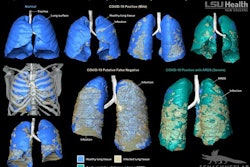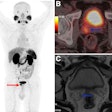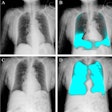Dear AuntMinnie Member,
Our top story this week detailed how researchers from Johns Hopkins University School of Medicine developed a high-performing five-minute knee MRI exam.
Their method, which combined a parallel acquisition protocol with simultaneous multislice acquisition, yielded comparable diagnostic performance to a 10-minute scan for a variety of knee conditions and on both 1.5-tesla and 3-tesla scanners. Although they acknowledged more research is needed to validate its clinical efficacy, the authors believe their technique could yield more efficient and effective patient care.
You can find this story and more in our MRI Community.
DBT for screening
Digital breast tomosynthesis (DBT) shows promise for lowering interval cancer rates and providing earlier detection than conventional digital mammography, according to a study from Sweden. After comparing one-view DBT with two-view digital mammography in nearly 15,000 women, researchers from Lund University found that a group of women who received DBT screening had a lower rate of interval cancers than those who received digital mammography.
While you're visiting our Women's Imaging Community, you can also read about a controversial study that claimed media coverage of 3D mammography was biased toward optimism.
AI for intracranial hemorrhage
Artificial intelligence (AI) algorithms that can flag suspected cases of intracranial hemorrhage for priority review can be incredibly valuable for improving patient outcomes. But it's important to note that the software may not necessarily deliver the same level of performance at every institution, according to new research. A team from the University of Wisconsin-Madison found that it yielded lower sensitivity and positive predictive value in their patient population than in prior studies in the literature.
Also, a new meta-analysis of radiology AI research brought some good news and bad news. The good news? Deep-learning algorithms generally achieved high overall accuracy in chest and breast imaging. The bad news? Widespread methodological and reporting issues make it difficult to definitively assess the clinical utility of these models.
In other news in our Artificial Intelligence Community, an AI algorithm was shown to facilitate accurate staging of chronic obstructive pulmonary disease. What's more, it could also enable predictions of five-year disease progression and mortality in these patients, according to a multi-institutional team.




















